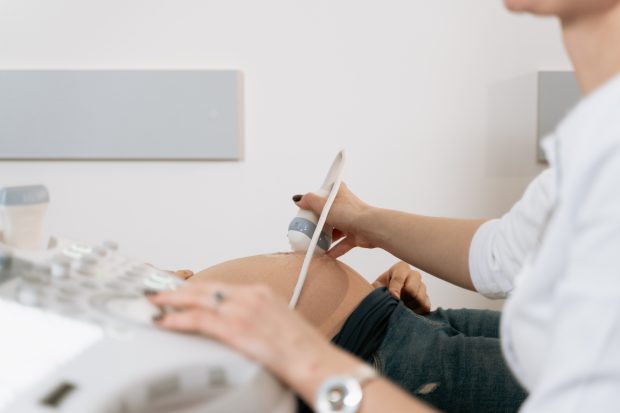It is well known that exercise yields a wide range of health benefits. Being important in maintaining a healthy weight, and improving cardiovascular health, exercise is crucial for living a healthy life. However, there is a debate on the impact of high-intensity exercise, specifically running, during pregnancy.
Running and Its Impact on Ovulation
Running is classified as an aerobic exercise. Research has indicated that excessive aerobic exercise, which is seven or more hours per week, may increase the risk of ovulation problems. Aerobic exercise is any type of cardiovascular conditioning, or “cardio”. Basically, it involves training that conditions your heart. Aerobic exercise is fueled by oxygen from the air in your breath. For example, when you’re running, your body needs more oxygen and less carbon dioxide. This can make breathing more difficult.
So, is this to say you should stop this aerobic exercise? Not necessarily, because it is important that we remember that at the end of the day, our bodies aren’t the same.
It’s Not The Same For Everyone
Most women who are used to these high-intensity exercises aren’t affected by infertility issues when they begin their pregnancy journey. Research suggests that it is safe for them to continue their level of exercise through the process of getting pregnant, the actual pregnancy, and beyond.
However, one way to be really sure of this is to visit your doctor. A physician will start by analysing your lifestyle, your exercising habits, and your fitness levels. This will enable them to advise you on whether you can proceed with high-intensity exercise during this process. On top of this being individualized, there is limited research to help prove whether exercise, specifically running, can impact a woman’s fertility.
Limited Research Available
In a review of different studies published in Sports Medicine. Ten interventions and four observational cohort studies were looked at to determine the effect that exercise has on ovulation. The cohort studies showed that there is an increased risk of anovulation in extremely heavy exercises (>60 min/day). Anovulation occurs when your ovary doesn’t release an egg (ovum) during your menstrual cycle. It is responsible for about 30% of fertility problems in women, with failure to ovulate is the most common overall cause of female infertility.
The University of Massachusetts Amherst conducted research on physical activity and the stages of pregnancy. According to lead author Lindsey Russo, a Ph.D., they found that “there was roughly a two-fold higher risk of very early pregnancy loss for women who were highly active compared to those who were less active.” Physical activity was defined in terms of “time spent and intensity levels”.
An Increased Risk of Miscarriage
Senior author Brian Whitcomb, associate professor of epidemiology in the School of Public Health and Health Sciences, shares that “for women who are experiencing difficulty conceiving, our results are consistent with prior work that has also shown that high exercise strain during the implantation period may be related to increased risk of loss.”

The common trend we see in these two studies is that the exercise in question is high-intensity. This suggests that it isn’t exercise in itself that can create a risk for infertility and pregnancy, but rather, its intensity.
In the same study published in Sports Medicine, it was observed that vigorous exercises of 30–60 mins were associated with reduced risk of anovulatory infertility. Dr. Jeff Williams, an OB-GYN, shares that “the intensity and duration of exercise are probably more important than the specific type of exercise”. High-intensity exercise is any exercise that gets your heart rate up above 75% of your average maximum heart rate for 10 minutes or more.
Examples of this include swimming, tennis, jumping rope, and running. High-intensity workouts are extremely effective at helping you burn fat, leaving your body in fat-burning mode for up to 24 hours.
However, some research suggests that this may be an issue for women who are pregnant, or trying to fall pregnant. Losing too much body fat due to high-intensity exercise can stop you from ovulating. When this happens, you will experience fertility problems. It is important to note that this only applies to those who are underweight, as this can cause the body to stop creating estrogen and affect ovulation. According to Brooke Hodes-Wertz, M.D., a reproductive endocrinologist, and infertility specialist, being underweight is linked to higher miscarriage rates. She states that “being as close to (your) ideal body weight as possible will lead to an easier time getting pregnant, staying pregnant, and having a healthy pregnancy.”
So Should You Be Exercising Before and During Your Pregnancy?
This is a question that only your doctor can answer. It is based on your health, your individual body, and its needs. However, with the studies that advocate for it, it may be smart to consult your doctor about it.
The American College of Obstetricians and Gynecologists states that “physical activity in pregnancy has been shown to benefit most women, although some modifications to exercise routine may be necessary because of normal anatomic and physiological changes that fetal requirements.” This is why you need to consult with your doctor, who will advise you on which exercises you should exclude, or include, in your routine.
Possible benefits of following a regular exercise program during pregnancy can include:
- Lower risk of gestational diabetes
- Reducing back pains, constipation, bloating, and swelling, all very common and uncomfortable during your pregnancy
- Aiding better sleep
- Improve your overall fitness by strengthening your heart and blood vessels
While these benefits may tempt you to begin an exercise regimen, it is essential that you get the go-ahead from your doctor. They may advise you to stay away from exercise if you have/are dealing with the following:
- Preeclampsia or high blood pressure which develops during pregnancy
- Cervical problems
- Heart or lung disease
- Persistent vaginal bleeding in your second or third trimester
- Severe anaemia
The Verdict on High-Intensity Workouts During Pregnancy
Exercise is incredibly important and can be beneficial to your fertility and pregnancy journey. But just like everything, you need to be certain that it will work for you, and not against you. Bodies aren’t the same, and women’s bodies are constantly changing during pregnancy.
If you do decide to implement an exercise regimen into your lifestyle, be sure to understand exactly how this will impact you. Pregnancy is a very sensitive time when you need to listen to your body and pay attention to how it reacts to any changes. If done the right way, and under professional supervision, exercise can be beneficial, for both you and your baby.



![women [longevity live]](https://longevitylive.com/wp-content/uploads/2020/01/photo-of-women-walking-down-the-street-1116984-100x100.jpg)










